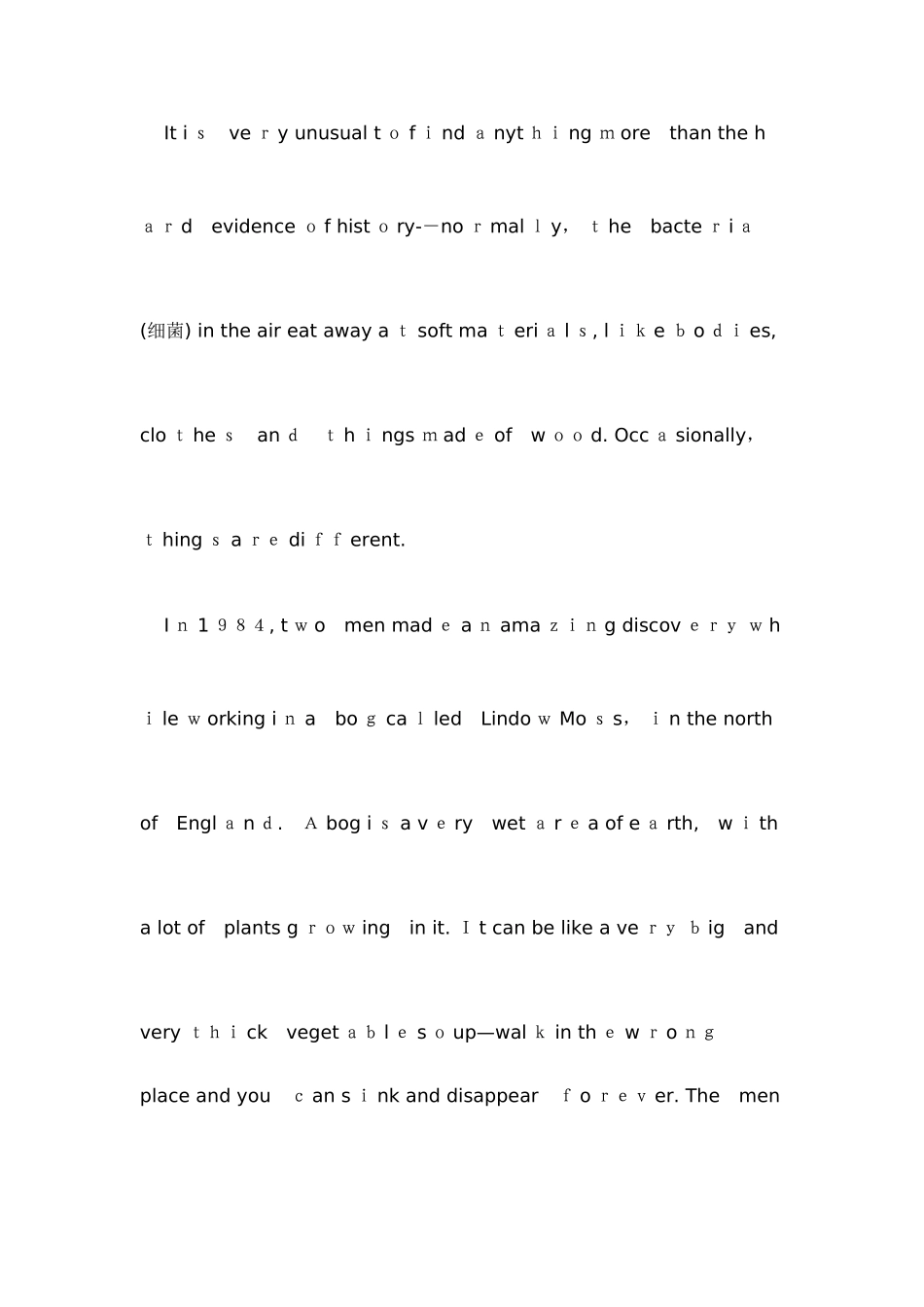2010 年 11 月 6 日学位北京英语考试 A 卷真题 Q ue sti on s 1 to 5 a re base d on the following pa s s age: A rc h aeolo g y, like many academ i c w ords, comes f rom Gr eek a nd means, m o re or les s, “t he stud y of o l d thing s”. S o, it is r e al ly a part o f the s t u dy o f h i stor y. Ho weve r, mos t his tori ans use pa p er ev i dence, s u c h a s let t ers, pain t ing s a n d pho to g r aph s,but a r ch a eol o gists (考古学家) l earn from the objects left b ehi n d by t h e hum a ns of long a go. Norm a l ly, t he s e are the hard m a te ri a l s th at d on't b r e a k down o r disappear very qu ic kly—th i ngs l i ke hu m an bone s and obje c ts made f r om s t one and m eta l. It i s ve r y unusual t o f i nd a nyt hi ng m ore than the har d evidence o f hist o ry--no r mal l y, t he bacte r i a (细菌) in the air eat away a t soft ma t eri a l s, l ik e b o di es, clo t he s an d t h i ngs m ad e of w oo d. Occ a sionally, t hing s a re di ff erent. I n 1 984, t w o men mad e a n ama zin g discov ery w hi le w orking i n a bo g ca l led Lindo w Mo s s, i n the north of Engl a n d. A bog i s a v e ry wet a r e a of e a rth, w i th a lot of plants g row ing in it. I t can be like a ve ry b ig and very thi ck veget ab l e s o up—wal k in th e w r o ng place and you c an s i nk and disappear f o rev er. The men were working w hen...


